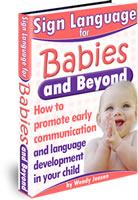Breastfeeding Schedule

For me it never seemed to suit my little guy to have a breastfeeding schedule that was strictly to that 4 hour time frame that so many hospital staff seem to recommend.
To me that seems somewhat ridiculous if you're trying to establish a milk supply and you've got a baby who's had constant food whilst in utero.
Worried about low milk supply? Click here for help
There is only one reason I've come across that medically warrants you spacing out your baby's breastfeeding schedule and that is lactose overload (where they get too much fore milk with more lactose and not enough hind milk with more fat so they get lots of painful wind).
I personally fed my little guy everyhour for the first little while - it meant I had lots of milk, no engorgement pain whatsoever, and a happier baby (although my nipples did get a bit trashed, but that's because we didn't get the latch sorted out).
Here are a few other reasons it's a good idea to feed according to need (or breastfeed on demand) rather than adhering to a strict breastfeeding schedule:
Breast milk is very easily digested and is quickly absorbed after a feed (which is why babies who need surgery are able to have a breastfeed relatively shortly before being anesthetized whereas formula fed babies must wait). Newborns and infants, who are used to having a constant supply of nutrients from their mothers bloodstream while in-utero are naturally likely to want to feed very frequently during their waking hours to keep their blood sugars stable. If they aren't able to feed frequently they will of course become upset. It is for these reasons that it can be useful to feed your newborn fairly frequently, which for some babies may mean every hour while they are awake.
The easiest approach is to go with the flow and feed according to your baby's need. All babies are very different in their frequency of feeds. Some mothers may have a low supply which means very frequent feeding helps them to build and maintain a larger milk supply. Some mothers have over supply issues and their babies may choose to feed less frequently. Some babies have more energy to maintain a nutritive sucking pattern and fill them up for several hours, but some may be too sleepy to take in enough milk to keep them going for more than an hour. (If you're having this problem I've found breast compressions a really useful tool to help get more milk into a sleepy baby)
An important point to remember in the early days is that a sleepy baby may need to be woken for feeds. Jaundice is common to most newborns in varying degrees, but in particularly bad cases it leaves the newborn very sleepy. Breast milk and sunlight are the two best cures for jaundice. If you have a sleepy baby it is wise to speak to a lactation consultant about whether it is appropriate for you to be waking your baby for feeds in those early weeks.
Another reason that a frequent breastfeeding schedule can be useful is that the breast milk is the baby's fluid source. Breast fed babies do not need water (contrary to what some in the older generation may talk about). Breast milk meets baby's drinking needs and newborns and infants do not need to be offered water until they start solids provided they are given frequent access to breast milk.
It is worth remembering that breast milk also contains immune cells that help a baby to fend off infections. If a baby becomes unwell they will most likely want to feed more frequently. This is important both from an increased fluid need while sick (making all the mucous which comes out the nose of a sick baby requires a lot more fluid than normal) and from an immune and stem cell perspective. Research shows that breast milk contains stem cells in varying proportions. The earlier a breastfeed is taken after previous feed, the more stem cells present in the milk. Of course breastfeeding also offers a sick baby comfort.
As the baby gets older there can be pressure from people outside the family unit to decrease the breastfeeding schedule to four hourly feeds. This may or may not work for every baby and it is important to stick with what feels right. Ultimately a baby will wean themselves if given the chance, and despite feeding very frequently for what seems like too long will suddenly back off and spread out their times between feeds all on their own. Some busy crawlers can even forget to feed because their mind is too stimulated by what they are exploring.
One sign that your baby may wish to feed less frequently is a very short feed duration, attaching for only a few minutes then getting distracted. This often occurs once a baby becomes more aware of their surroundings. The mother, so used to the routine that their baby has naturally fallen into, offers the breast at a time when baby used to feed well and is stuck with an exposed breast and potentially sore nipples from her baby de-latching poorly. If this is happening, waiting for a while until baby clearly shows a need for milk is useful.
Overall you must feel comfortable with the breastfeeding schedule you have chosen, keeping it in line with your baby's needs. Over time all routines change and being open to these changes will make for a smoother transition and a happier baby and family unit. Ultimately, as in everything to do with parenting, it is up to the family unit to decide on their own needs and comforts and this is the same when creating a breastfeeding schedule. This can be challenging though if there people are people who don't agree with the decision which has been made. To cope with that feeling of pressure from other people's opinions it is important to feel comfortable with the decision that you have made.
Back to Breastfeeding Babies home page from Breastfeeding Schedule


Know what your baby wants when they want it!
Learn baby sign language and you can feel confident that you never miss your baby's cues for food, sleep and so much more!

Did I Help You Today?
It costs me money to keep this site running. If I've made your day easier it would be really helpful for me if you could spare a few dollars to help me keep the site running with useful, current information! It's your way of saying
Want to know all the latest breastfeeding advice and news?
Sign up for the Breastfeeding-Babies newsletter below






New! Comments
What do you think? Any good ideas, suggestions or questions?